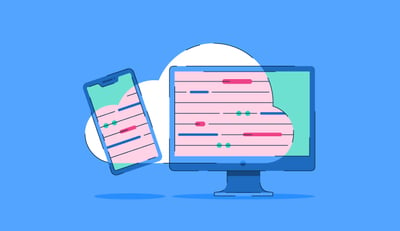November 30, 2022
 by Jennifer Clark / November 30, 2022
by Jennifer Clark / November 30, 2022

Nothing in this world is duty-free.
Imagine you had a workcation in London and are now heading back to India. At the Heathrow Terminal, you came across a pretty Da Milano showroom that sells purses. You go inside, select a pretty purse and buy it for the exact cost price, without paying any import.
Internet sales tax is attached to selling an online product or service from an internet retailer or e-commerce brand. Every remote retailer of a state that sells interstate goods need to remit sales tax to the government of the destination state. This means that consumers, who earlier were only billed by physical storefronts, now also need to pay online tax amounts.
The rules of internet tax are self-applicable to the state government. The Senate does not play a direct role and leaves the ruling to individual decision-making bodies. That's why 45 states within the US that follow this rule have different tax rates, rules, and permit guidelines.
If your business is located in Colorado, but you outsource your products in Mississippi, the Mississippi government has the authority to levy a specific amount of sales duty on your products. This means cross-selling businesses need to file taxes in the same state where customers reside in.
The South Dakota vs. Wayfair judgment reinstated the US tax laws in a way that now benefits both the e-commerce and "brick-and-mortar" stores. Because of rising internet demand, the profits of "brick-and-mortar" stores have dwindled. But now, internet sales tax ensures both online brands and storefronts have equal taxables, profit collections, and tax neutrality.
However, an edge is always given to e-commerce since they drive the most revenue.
Here are three ways in which you can tax your consumers:
When to collect internet sales tax?
Knowing when you should collect sales tax is defined by a concept called “sales tax nexus” -- and that’s a whole other ballgame. It’s not as easy as filing your taxes at the end of the fiscal year and sending it to the revenue department for audit. Nexus laws can be tricky, and depend on whether you're actually a remote seller or not.
if you have a tie-up or an associated partner in a particular state, in form of an outlet, branch office, or headquarters, you can opt for a sales tax permit in that state. Of course, this rule applies to states that have legalized internet sales tax. If you are an e-commerce brand with a physical backdrop in a tax-free state, internet sales tax is out of your concern.
You may have heard the word nexus in its literal meaning, to bind, join, or tie. But in sales tax, nexus is just a fancy way for the state to decide if you must pay them sales tax or not.
The sales tax nexus is a relationship between a governing authority like a state and a business owner of a small or large scale. It means that the government of a state can impose sales tax on you, regardless you have a physical relationship or not. The tax retained from online retailers is used to renovate infrastructure, pay debts, and maintain roads, and other construction tenders.
Tip: Only five states in the U.S. do not collect sales tax from internet purchases as of 2022. These include Alaska, Delaware, New Hampshire, Montana, and Oregon.
Here are some nexus scenarios under which you would be eligible to do business and get a tax permit in a particular state:
The below-displayed map of the US shows how many states have opted for marketplace facilitators, economic nexus, or remote seller requirements. . Source: Tax Foundation
. Source: Tax Foundation
The most important thing to know about economic nexus is that there is no one-size-fits-all threshold to trigger it. After the Wayfair decision, South Dakota set their state threshold for retailers to pay sales tax once they hit $100,000 in sales and 200 transactions over 12 months. While some states have mimicked these same figures, others have their limits.
Here are a few examples:
This variance can have significant implications for high-volume sellers with customers across the country. Further, some states have predicted tax requirements for the future but not the present. If you're starting as a remote seller, knowing the nexus requirements of your location is crucial to know whether you'll qualify for a tax license.
At this point, chances are that you might be feeling overwhelmed. With a practice so detailed, even the slightest misstep can cause heavy calculation errors. Knowing how to register internet sales tax on your cross-state goods is important as government regulators check it during the audit process. Let's understand what the process is like.
Now that you know if and where you have nexus, the next step is registering for a sales tax permit. You'll need a permit if you collect sales tax because it’s against the law to collect it without one. Like with nexus, each state differs somewhat, but the steps are relatively the same when registering to collect sales tax:
Pre-requisites of filing for a tax permit in any of the 45 US states that accept internet tax:
While receiving your application may take a few weeks, don’t worry. After you've submitted your application, the state may ask for more information, such as your gross sales or the types of products you sell. Once they’ve reviewed it, you’ll be granted a tax ID number to use when collecting sales tax. You’ll also receive instructions on how to file sales tax returns.
This permit will also come with state-issued filing frequency to inform you when you need to file the taxes (the duration, the tenure, and the deadline). It can typically be monthly, quarterly, or annually.
Once you've got the permit and know the cycle, you can add the additional tax charge to your purchase fee receipts. It could be done in several ways: either through GST, convenience fee, or excise. Your shopping cart needs an entire amount of breakup that keeps things transparent between you and your customers. Also, it is important to customize your application in a way that only taxes an eligible customer and not every customer.
It may seem like you’re off the hook if you sell goods on an online marketplace like Amazon or Etsy. But there’s still work to do. Marketplace facilitator laws are relatively new, and even though some states impose these laws, most sellers must still keep their permits valid. A marketplace facilitator will only handle the sales tax on transactions sold through its platform.
So, if you sell products on a personal website or storefront outside of that marketplace, you’ll still need to collect taxes through the sales on your website, even if Etsy or Amazon collects for you.
Two other important factors around collecting sales tax are whether your business is located in an origin-based state or a destination-based state.-png.png?width=600&height=376&name=Copy%20of%20X%20vs%20Y%20Template%20(27)-png.png)
Origin-based states require sales tax collection based on the seller's business location. There are 12 origin-based states, so if you live in Arizona, California, Illinois, Mississippi, Missouri, New Mexico, Ohio, Pennsylvania, Tennessee, Texas, Utah, or Virginia, you should be charging the tax rate for where your business is located. Please note that rate could include a combination of state, county, city, and district tax rates.
Destination-based sales tax determines your sales tax rate based on where your buyer is located or the destination of the sale. This can be a little confusing because you’ll also need to add state rates plus local tax rates, which could be any combination of state, county, city, and district tax rates.
Tip: If you are a resident of Texas, you'll remit obligations to the Texas government. If not, you'd collect tax via destination sourcing. Collecting destination remittances might result in nexus multiples.
An online business can get lucrative, but you need to set a foundation first. In addition to setting up a go-to-market strategy, you need to exercise proper accounting and tax controls to maintain the integrity of your brand.
In addition to knowing how much to charge your customers, you’ll also want to ensure you learn the rates of the products you sell. Some goods and services are taxed at specific rates (Clothing in NY), reduced rates, or exempt from tax altogether. While groceries and prescription drugs aren't taxed in some places, digital downloads and pathological tests are taxed if booked through the internet.
For most businesses, staying up-to-date with legal ramifications and tax policies is almost impossible. However, with an automated solution, like sales tax and VAT compliance software, you can apply state legislature laws to your customer-facing transactions and tax your sales accurately. The software keeps track of ever-changing laws and fetches them into your system to make your business compliant and error-free.
Business owners, customer support teams, accounting and finance teams, and other administrators use a variety of internet sales tax in the form of VAT (value-added tax), GST, indirect tax, or cess and surcharge. The sales tax and VAT compliance software benefit these stakeholders by automating tax amounts with the business purchases, product types, and other obligations. Some tax-compliance tools also elicit alert notifications for you to file your returns to have full accounting control of your business.
Establishing a relationship with a sales and local tax (SALT) expert who can guide you through a state’s complex sales tax rules is highly recommended. Each state has its own Department of Revenue (or a variation) website and will typically have resources that can help with sales tax calculations and current legislation.
If you're operating your business remotely, slipping down the rabbit hole might sound attractive to avoid tax hassles. However, it won't establish you as a trustworthy name in the long run. Keeping your coins clear is the only way to keep them clinking in your bank account. Having a clean slate of your customer transactions will benefit your business and the entire economic wheel of the state.
Stay compliant across states and countries with the best sales tax compliance software, featuring tools that automate filings, track nexus, and ensure VAT accuracy for growing businesses.
This article was originally published in 2019. The content has been updated with new information.
A creative content marketer, Jennifer Clark has made her career writing for higher ed, B2B SaaS, and technology solutions. She enjoys turning abstract concepts into engaging copy. Outside of storytelling, Jennifer enjoys live music and playing guitar.
Every business dreads tax season, but it doesn't have to be so scary.
.png) by Devyani Mehta
by Devyani Mehta
Cloud storage has made it easier for us to store our data. Previously, you might have used...
 by Sagar Joshi
by Sagar Joshi
Not many people find taxes fun.
 by Mary Clare Novak
by Mary Clare Novak
Every business dreads tax season, but it doesn't have to be so scary.
.png) by Devyani Mehta
by Devyani Mehta
Cloud storage has made it easier for us to store our data. Previously, you might have used...
 by Sagar Joshi
by Sagar Joshi


